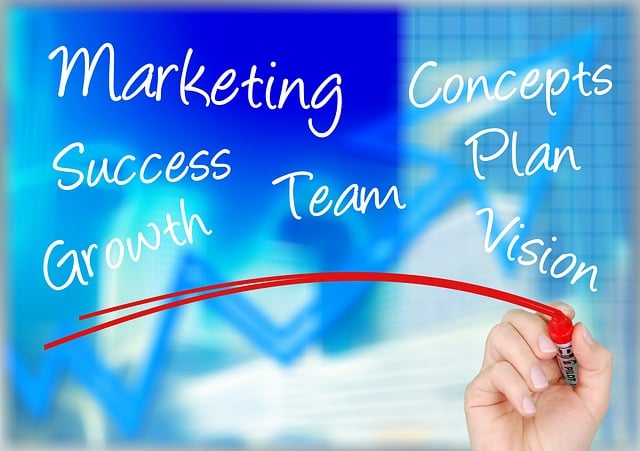AI systems are transforming auto repair marketing by leveraging machine learning and natural language processing to understand customer preferences and behaviors, enabling personalized campaigns and predictive maintenance. Through automation, AI enhances customer relationships and streamlines processes, providing a competitive edge. To implement successfully, businesses should assess needs, select suitable AI tools, conduct pilot tests, prioritize data privacy, staff training, and maintain a human connection alongside automation for building trust and long-term client relationships.
“The automotive industry is at the precipice of a revolution, driven by artificial intelligence (AI). This transformative technology offers auto businesses unprecedented opportunities, from streamlining marketing strategies to enhancing customer experiences. Understanding and effectively implementing AI systems can unlock new levels of efficiency and profitability. This article provides an insightful guide on leveraging AI for marketing success in auto repair, covering its pivotal role, step-by-step implementation strategies, and essential tips to maximize benefits while steering clear of common pitfalls.”
- Understanding AI's Role in Auto Repair Marketing
- Implementing AI Systems: Step-by-Step Guide
- Maximizing AI Benefits and Avoiding Common Pitfalls
Understanding AI's Role in Auto Repair Marketing

In today’s digital era, AI systems are transforming every sector, and the automotive industry is no exception. When it comes to marketing, AI offers a myriad of opportunities for auto repair businesses to stand out and achieve success. By leveraging machine learning algorithms and natural language processing, these businesses can gain valuable insights into customer behavior and preferences. This allows them to create highly personalized marketing campaigns that target specific vehicle makes, models, and common issues, ensuring the right message reaches the right audience.
AI-driven marketing automation enables auto repair shops to streamline their processes effectively. Automated systems can analyze vast amounts of data to identify trends, predict maintenance needs based on vehicle history, and send proactive alerts to customers. This not only enhances customer experience but also fosters long-term relationships, leading to increased loyalty and repeat business. Ultimately, AI systems for marketing success in auto repair provide a competitive edge by enabling businesses to stay ahead of the curve and meet the evolving demands of modern consumers.
Implementing AI Systems: Step-by-Step Guide

Implementing AI Systems: Step-by-Step Guide for Auto Businesses
The first step in integrating AI systems for marketing success in auto repair is to assess your business needs and goals. Identify pain points in current operations, such as inefficient customer engagement or inaccurate diagnostics. Evaluate existing data sources and infrastructure; this includes understanding the types of data you collect on customers, vehicles, and service history. A clear vision for how AI can address these issues is crucial.
Next, select appropriate AI tools and technologies based on your assessment. This might include chatbots for customer support, predictive analytics to forecast maintenance needs, or machine learning algorithms for diagnosing complex vehicle issues. Ensure the chosen solutions are scalable and compatible with your existing systems. Pilot testing is essential; start with a small-scale implementation in one department or location to gauge performance and gather user feedback before expanding across your auto repair network.
Maximizing AI Benefits and Avoiding Common Pitfalls

Maximizing AI Benefits and Avoiding Common Pitfalls
Implementing AI systems can significantly enhance marketing strategies within the auto repair industry, but it’s crucial to approach this transformation with a strategic eye. Auto businesses should focus on leveraging AI for predictive analytics, enabling personalized customer interactions, and streamlining operational tasks. By utilizing machine learning algorithms, these shops can anticipate maintenance needs, target specific vehicle models with tailored promotions, and offer proactive services, ultimately boosting customer retention and satisfaction.
However, to avoid common pitfalls, auto repair owners must ensure data privacy and security, as AI relies on vast customer information. They should also invest in training staff to interact effectively with new AI-driven tools while maintaining a human touch. Balancing automation with personalized service is key to achieving marketing success in this evolving landscape, fostering trust, and solidifying long-term relationships with clients.
AI implementation offers a competitive edge for auto businesses, transforming traditional practices through intelligent automation. By understanding AI’s role in marketing and following a structured guide, auto repair shops can enhance customer engagement and streamline operations. Maximizing AI benefits requires strategic planning, continuous learning, and staying updated with the latest advancements. Businesses should also be aware of common pitfalls, such as data privacy concerns and initial investment costs, to ensure successful and ethical integration of AI systems for marketing success in auto repair.
